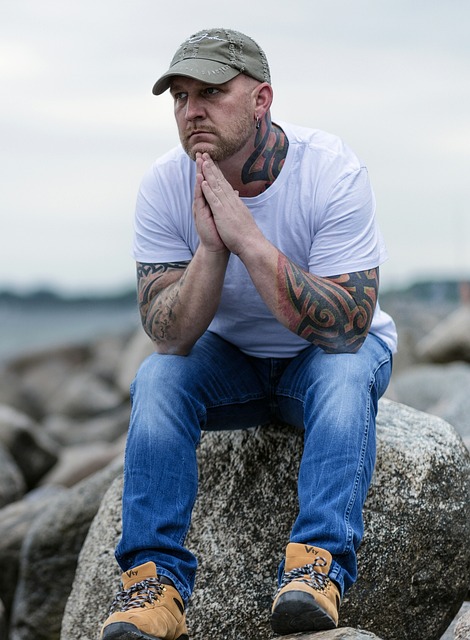Core Sadness vs. Wounded Sadness
By Dr. Margaret PaulApril 05, 2010
Discover the vast difference between two very different kinds of sadness, and what causes each.
 Very often, in my work with my clients, when I ask them what they are feeling they say, "I feel sad." Often, they do not know why they feel sad.
Very often, in my work with my clients, when I ask them what they are feeling they say, "I feel sad." Often, they do not know why they feel sad.
Sadness comes from two very different sources.
Core Sadness
Core sadness is sadness that is in reaction to something that is happening or has happened externally. Many life situations can cause sadness, such as:
-
Loss: loss of people (through death or leaving), loss of a job and financial security, loss of a beloved pet, loss of face through another's betrayal, loss of health, and so on.
-
Witnessing people's cruelty to people, animals, and the planet. Witnessing the greed with which many people operate, which harms others and the planet.
-
Witnessing the pain of others that results from natural disasters, such as fires, earthquakes, floods, and so on. As well as witnessing others' pain as a result of their loss.
- Being with a person with whom you want to connect and the person's heart is closed. They are angry or withdrawn and unavailable to sharing caring.
Core sadness needs to be compassionately embraced. We need to be very gentle with ourselves and others when we, or others, are experiencing core sadness. Often, people are afraid of this feeling and other deep painful feelings of life, and turn to various addictions to numb out feelings of sadness, grief, heartbreak, heartache, loneliness, and sorrow. When we don't gently and compassionately embrace these feelings, they get stuck in our bodies and can cause other problems, such as acting out with others, addictive behavior, and illness.
Wounded Sadness
Wounded sadness is sadness that we are causing to ourselves by our own self-abandonment. When we have not learned how to take loving care of ourselves and manage our core painful feelings, then we ignore our feelings, judge ourselves, turn to addictions, or make others responsible for our feelings. All these forms of self-abandonment cause our inner child - which is the feeling part of us - to feel sad and alone inside.
Sometimes people get addicted to wounded sadness as a way of avoiding the authentic sadness of life, and avoiding responsibility for lovingly managing these feeling. They hope that by feeling sad, they can get others to take care of them and make them feel better. This is a victim state, and often results in others pulling away, as most people do not want responsibility for another's feelings.
People who suffer from wounded sadness convince themselves that their sadness is being caused by others not caring about them, or by bad luck, or by God abandoning them. They do not want to accept that they are causing their own sadness with their own self-abandonment. Until they decide that they want responsibility for causing their wounded feelings and for managing their core painful feelings, they will continue to see themselves as victims who need someone to rescue them. They will continue to be addicted to sadness as a way of attempting to manipulate others into taking responsibility for them.
People who tend to be caretakers often get trapped in trying to make a sad victim feel happy, which is exactly what the victim wants. While giving comfort and compassion to someone who is experiencing core sadness due to life situations is very loving and helpful, giving this same comfort and compassion to someone suffering from the wounded sadness that they are causing themselves is like giving an alcoholic a drink - it enables them to continue to abandon themselves.
If you are in a relationship with someone who pulls on you with their wounded sadness to make them happy, it is important for you to compassionately embrace your own core sadness at not being able to connect with them. We cannot connect with someone who is disconnected from themselves, which is always a result of self-abandonment.
Wounded sadness is healed only when a person decides to learn how to develop their loving adult self, capable of taking responsibility for their own feelings. It is the practice of Inner Bonding® that develops the loving adult self.
Join Dr. Margaret Paul for her 30-Day at-home Course: "Love Yourself: An Inner Bonding Experience to Heal Anxiety, Depression, Shame, Addictions and Relationships."
Image by Sascha Milk from Pixabay
 Send this article to a friend
Send this article to a friend  Print this article
Print this article  Bookmarked 12 time(s)
Bookmarked 12 time(s)
Comments
| Author | Comment | Date |
|---|---|---|
| Join the Inner Bonding Community to add your comment to articles and see the comments of others... | ||

Daily Inspiration
Today, notice what is more important to you - trying to get others to like you or loving yourself. If you are devoted to having control over how others' feel about you, notice how much energy this takes!
By Dr. Margaret Paul

 Share with Del.icio.us
Share with Del.icio.us Share with Digg
Share with Digg






